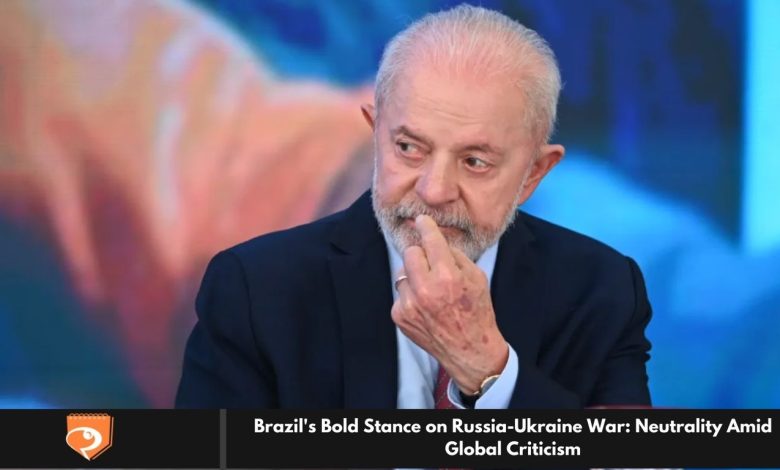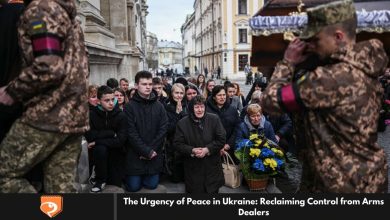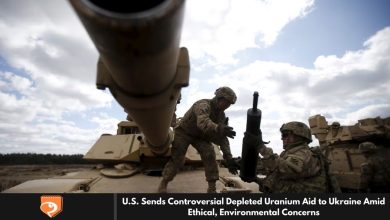Brazil’s Bold Stance on Russia-Ukraine War: Neutrality Amid Global Criticism

Brazil’s response to the ongoing Russia-Ukraine conflict has drawn global attention. Since the war’s escalation in 2022, the country has adopted a neutral position, focusing on diplomatic efforts rather than direct involvement. President Luiz Inácio Lula da Silva’s leadership underscores Brazil’s unique approach to peace-building amid international criticism and complex geopolitics.

Neutrality has become a cornerstone of Brazil’s foreign policy under Lula. Rejecting sanctions or military aid, Brazil has instead prioritized fostering dialogue. This approach reflects its long-standing tradition of non-intervention and its commitment to global diplomacy, positioning itself as a potential mediator in the conflict.
Despite this, Brazil’s stance has not been without controversy. Ukrainian President Volodymyr Zelensky has criticized Brazil’s peace initiatives, arguing that neutrality indirectly benefits Russia. These critiques highlight the challenges Brazil faces as it navigates its role in an increasingly polarized global landscape.
Brazil’s Position on the Russia-Ukraine War
Brazil has firmly maintained a neutral stance in the ongoing Russia-Ukraine war. Since the conflict’s escalation in February 2022, President Luiz Inácio Lula da Silva has emphasized Brazil’s role as a mediator rather than a participant. The South American giant has refused to impose sanctions or provide military aid to either side, focusing instead on peace proposals.
Lula’s Vision for Neutrality
President Lula has articulated his vision of Brazil as a nation dedicated to peace. During a recent speech at the Rio Branco Institute, he reiterated that Brazil’s priority is fostering dialogue and avoiding direct involvement in the conflict. He underscored that Brazil’s current prominence on the global stage extends beyond its resources—like agriculture, iron ore, and energy—to its commitment to diplomacy.
Zelensky’s Criticism of Brazil’s Neutrality
Ukrainian President Volodymyr Zelensky has criticized Brazil and China’s joint peace initiative. He called their approach “destructive,” asserting that nations not supporting Ukraine are indirectly supporting Russia. Zelensky also expressed disappointment that Brazil and China did not align with Ukraine’s 10-point peace formula.
Brazil and China’s Six-Point Peace Plan
In May 2023, Brazil and China introduced a six-point peace plan. The proposal includes avoiding escalation, increasing humanitarian aid, and convening an international peace conference. Key highlights of the plan are:
Non-escalation and avoiding provocations.
An international peace conference with fair discussions.
Enhanced humanitarian efforts and exchange of prisoners of war.
Prevention of nuclear proliferation.
Protection of nuclear facilities from attacks.
Strengthened global industrial and supply chain stability.
Global Reactions to the Peace Plan
The plan has received mixed reactions. While Russia expressed openness to Brazil and China’s mediation, Ukraine criticized the plan’s lack of emphasis on a complete Russian withdrawal. The absence of China at a global peace summit in Switzerland further complicated the reception of the plan.
Historical Context of Brazil’s Neutrality
Brazil’s position in international conflicts has historically been one of non-intervention. During Lula’s first tenure as president (2003-2011), Brazil avoided entanglements in global conflicts. This continuity reflects Brazil’s long-standing diplomatic tradition.
Economic Factors Influencing Brazil’s Neutrality
Brazil’s economic ties play a significant role in its neutral stance. As a major exporter of agricultural products, iron ore, and energy, Brazil’s global relationships are critical. Aligning with one side in the conflict could disrupt these vital trade connections.
Brazil’s Diplomatic Efforts
Brazil’s commitment to diplomacy is evident in its push for peace negotiations. Lula’s administration has emphasized dialogue and multilateral cooperation, seeking to act as a bridge between conflicting parties.
Challenges to Brazil’s Neutrality
Maintaining neutrality has its challenges. Brazil faces criticism from Western nations for not supporting sanctions against Russia. Simultaneously, Brazil’s peace proposals must navigate the complexities of global geopolitics, where conflicting interests make consensus difficult.
The Role of Brazil in Global Energy Dynamics
Brazil’s energy resources have further amplified its importance in global geopolitics. As one of the leading producers of renewable energy, including hydroelectric power and biofuels, Brazil’s energy diplomacy shapes its international relations. This energy independence allows Brazil to maintain neutrality while promoting global cooperation on sustainable energy solutions.
Potential Mediator Role for Brazil
Brazil’s history of diplomacy positions it as a potential mediator in the Russia-Ukraine war. Its non-aligned stance and strong relationships with both Western powers and nations like China give it unique leverage. By advocating for peace and dialogue, Brazil could bridge gaps between opposing sides and contribute to de-escalating the conflict.
Looking Ahead: Brazil’s Influence on Peace Initiatives
As the Russia-Ukraine war continues, Brazil’s efforts to promote peace will likely face scrutiny and challenges. However, its consistent stance on neutrality and dialogue may pave the way for meaningful contributions to global peace initiatives. The success of these efforts will depend on Brazil’s ability to balance diplomatic pressures and maintain its credibility as a neutral actor.
Frequently Asked Question
Why did President Lula say Brazil could not take part in the Russia-Ukraine war?
President Lula stated that Brazil, as a neutral country, must avoid involvement in the conflict by focusing on diplomatic solutions rather than military action.
What prompted President Zelensky’s criticism of Brazil’s position?
Zelensky criticized Brazil’s stance for not supporting Ukraine more actively in its war against Russia, particularly over Lula’s call for negotiations instead of continued military support.
What is Brazil’s position on the Russia-Ukraine war?
Brazil has maintained a neutral stance, advocating for peaceful negotiations and diplomatic efforts rather than military intervention.
How has President Lula’s statement affected Brazil’s relationship with Ukraine?
While Ukraine expressed disappointment, President Lula emphasized Brazil’s commitment to peace and urged for international dialogue to resolve the conflict.
What role is Brazil playing in international efforts regarding the war?
Brazil has positioned itself as a mediator, promoting dialogue between the involved parties and supporting UN resolutions calling for peace and de-escalation.
Has Brazil taken any actions to support Ukraine despite its neutral stance?
Brazil has provided humanitarian aid to Ukraine, though it has refrained from offering military support or joining sanctions against Russia.
What has been the reaction of other countries to Brazil’s position?
Some countries support Brazil’s neutrality, while others criticize it for not taking a stronger stand in support of Ukraine.
Will Brazil consider military involvement if the situation worsens?
Lula has firmly stated that Brazil will not engage militarily in the conflict, emphasizing the importance of diplomacy over armed intervention.
What diplomatic efforts has Brazil made regarding the war?
Brazil has called for international peace talks and worked with organizations like the UN to facilitate dialogue and humanitarian efforts.
What are the consequences of Brazil’s position for its international standing?
Brazil’s neutral stance has led to mixed reactions, with some nations appreciating its diplomatic approach while others criticize it for not taking a firmer stance against Russia’s actions.
Conclusion
Brazil’s neutral position in the Russia-Ukraine war reflects its broader diplomatic philosophy. By focusing on peace and dialogue, Brazil aims to contribute to global stability without compromising its economic and strategic interests. As the war continues, Brazil’s role as a potential mediator could become increasingly significant.




